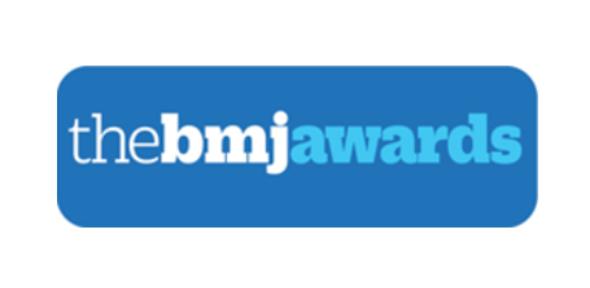
Prof Rebecca Fitzgerald (MRC Cancer Unit) and her Upper GI team recently received a Gastroenterology Team Award from the BMJ (Cytosponge – find cancer early). The BMJ Awards are the UKs premier medical awards programme, recognising and celebrating the inspirational work done by doctors and their teams.
In collaboration with colleagues at Cambridge University Hospitals, the team developed a simple diagnostic test for oesophageal cancer, called the Cytosponge(TM), which the patient swallows, thereby avoiding the need for endoscopy.
The biggest risk factor for cancer of the oesophagus is heartburn - acid reflux - but the vast majority of patients who go to their GPs with this complaint are not sent for endoscopy. The Cytosponge(TM) is a simple pill-on-a-string, which is swallowed by the patient, remains in place for a few minutes for the gelatin-like coating to dissolve, and is then retrieved with only minor discomfort. The cells it has collected are tested for the presence of a protein, Trefoil factor 3 (TFF3), which is a marker for Barrett’s oesophagus, a common precursor of cancer. The test has a very high negative predictive factor (99%), eliminating the largest possible number of patients from the need for further investigation. In a series of four studies, the Cytosponge(TM) has proved itself suitable for use in primary care, accurate in diagnosing Barrett’s and acceptable to patients.
The team are currently launching a final study in primary care (BEST3 trial) to ensure that the health economics add up. Prof Fitzgerald commented “Then we’ll take it to the National Institute for Health and Care Excellence and say ‘here it is’”. There is a risk that use of the test might generate such a need for follow-up that endoscopy departments would be flooded. “We’re aware of that, so now we’re working on going one step further” she says.
This innovative diagnostic test was widely praised by the judging panel: “This is a novel and ingenious idea that combines a simple technology with highly advanced diagnostic techniques. We were impressed that the cytosponge has the potential to be used to diagnose other oesophageal conditions”.
